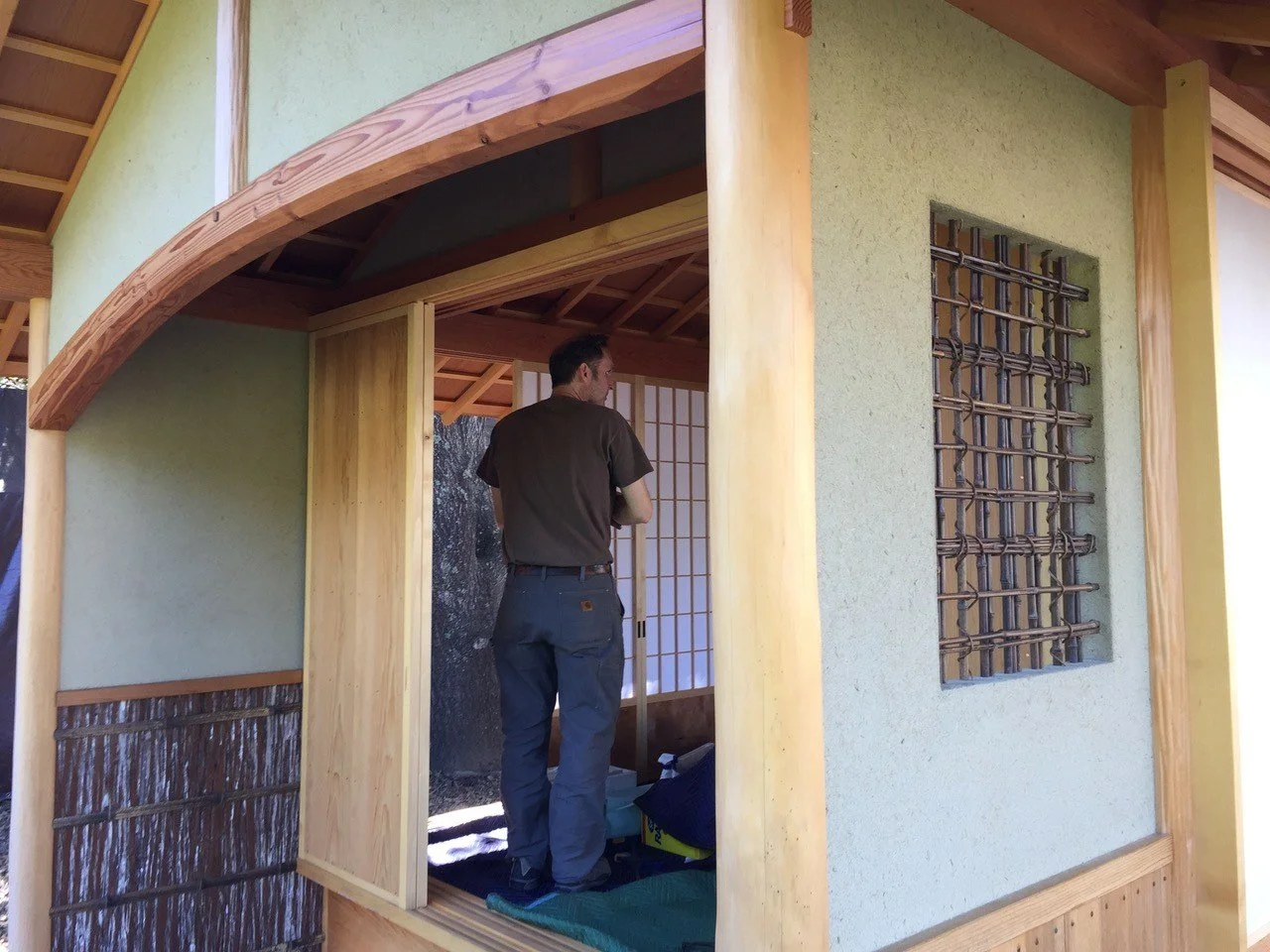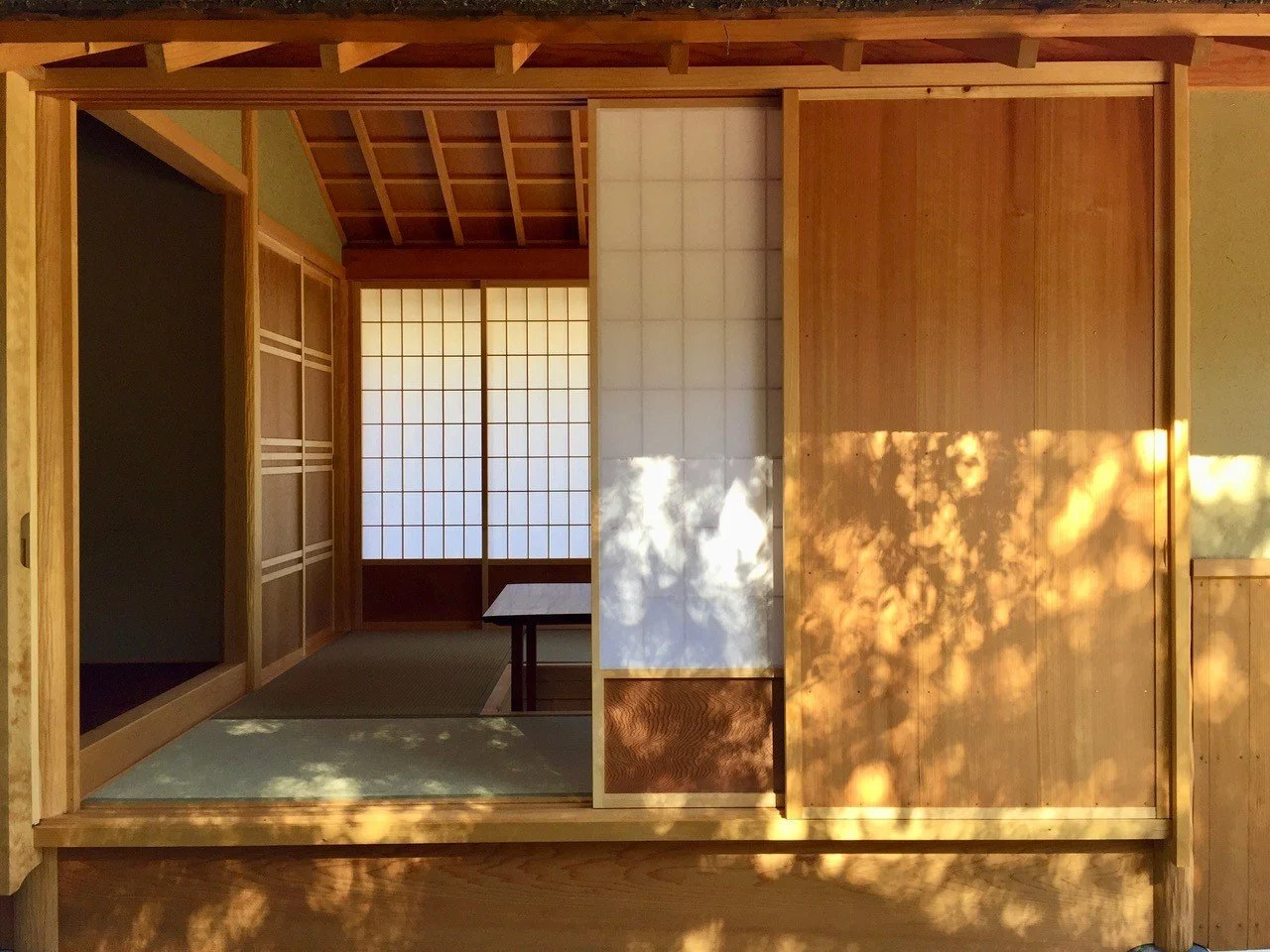Craft and Philosophy: Jeff Bearce’s Journey into Japanese Woodworking
When Jeff Bearce first set foot in a Japanese carpentry shop, he wasn’t a trained woodworker—he was a philosophy Ph.D. student looking for a job.
That unexpected entry point, an interview with master builder and Zen priest Paul Discoe of Joinery Structures, opened the door to a decades-long journey into traditional Japanese woodworking. “He looked at my interest in philosophy and religious studies,” Jeff recalled, “and said, ‘How could we not hire you?’” That first role quickly evolved into something much more than just a job.
Jeff’s story unfolded from the Bay Area to rural Maine, with a winding path that bridged craft, community, and deep aesthetic curiosity. In California, he spent years learning and building within one of the most vibrant Japanese woodworking communities outside of Japan. “We were finishing up this project—a massive estate built in traditional Japanese style,” Jeff explained. That project sparked years of work: from making shoji screens and tea rooms to tansu chests and gates, Jeff eventually co-founded his own shop with a few close friends.
Jeff in one of the tea houses
What Jeff didn’t have in formal apprenticeship, he made up for in community. The network he formed in California—builders, artists, tool specialists—became his lifeline. “There was always someone I could call,” he said. “Even now, if I have to build something I’ve never done before, like a wooden soaking tub, I have friends who’ve done it and are willing to share what they know.”
That generous spirit later followed him to Maine, where he relocated with his wife two years ago. “We came for the coast,” he admitted, laughing. “We were going to move to the Berkshires, but we saw the rocks and trees and water here and that was it.” Maine’s quiet beauty reminded them of the spare, windswept aesthetic of Japanese gardens: a perfect canvas for the couple, who now collaborated on tea houses and garden projects together.
Jeff’s work continued with quiet intensity, shaped by both his creativity and Japanese discipline. “Speed is part of the craft,” he noted. “Japanese carpenters move fast, but everything is intentional. There’s an economy of movement that’s beautiful to watch.”
Japanese woodworking art
Beyond his own projects, Jeff also became part of an ongoing Japanese woodworking movement on the East Coast. He has contributed as a guest teacher and presenter at the Japanese Woodworking Festival in Maine, organized by a group of amazing people in the community, such as Jason and Lauren Fox of Never Stop Building. The festival now celebrates its third year in July 2025. “This is just one piece,” Jeff said. “They now have classes throughout the spring, summer, and fall, and even some in winter.”
The Annual Japanese Woodworking Festival
From his early days of studying Plato and mysticism to hand-crafting tea houses in coastal Maine, Jeff’s story reflected the intricate layers that built a life of meaning. His admiration for Japan ran deep, though never simplified: “It’s a subtle, complex place,” he said. “I was overwhelmed by the aesthetic depth. Even a sewer cover in Kyoto—there’s care in everything.”
Jeff and the woodworking community in Maine will be holding a traditional Japanese gate building class this fall out at Never Stop Building in Mercer, Maine. Students will build a gate that will be erected at the Morgan Bay Zendo in Surry, Maine. If that sounds interesting, please reach out!
Check out @neverstopbuilding on Instagram, and their website for more info.
Find out more about Jeff’s story at: https://www.instagram.com/3sticksdesign/
🌊 Subscribe for more Maine–Japan stories that celebrate culture, community, and creativity across the sea!
📩 Want to share your story? Email us: jcaofmaine@gmail.com.
📷 Follow us on Instagram: https://www.instagram.com/maine_japan/




